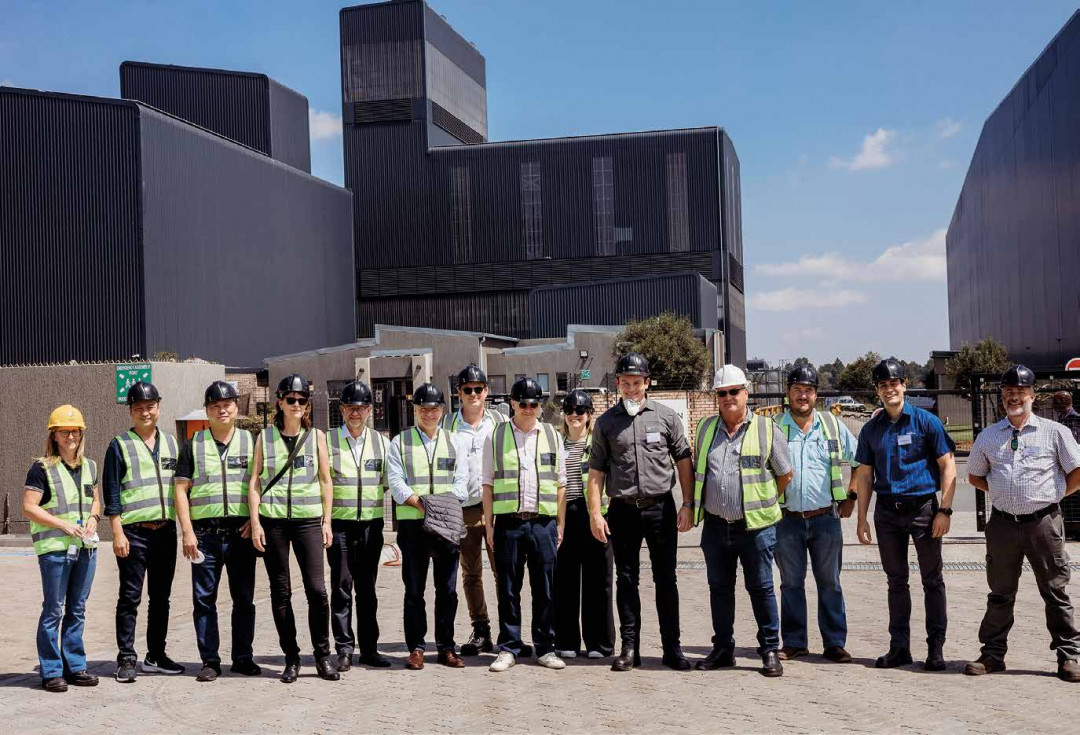
On 18 March, the James Durrans Group in Sasolburg celebrated the 5th anniversary of its subsidiary Carbon International Trading.
In South Africa, coal liquefaction plants of the predominantly state-owned company SASOL supply more than 50 per cent of the liquid fuels used there. Among other things, these plants produce green coke, i.e. coke that has not been heat-treated or calcined. Carbon International Ltd. calcines this green wax coke using vertical shaft calcination (VSK), which was developed in Europe around 1920.
In order to avoid dependence on China and generate jobs and revenue in South Africa, the decision was made to build a VSK plant in South Africa, which went into operation in 2019. The financing of the project was supported by the shareholders of the Durrans Group, Christopher and Nicholas Durrans. An anchor customer was also found in the MAT Foundry Group. The advantages of the product - low sulphur and nitrogen values and high C-solubility - should also convince other potential customers such as automotive foundries. In order to provide independent data, the Foundry Institute at the Technical University of Freiberg carried out extensive research and development work under the direction of Prof Dr Gotthard Wolf and Dr Claudia Dommaschk.
The plant was quickly able to achieve its capacity utilisation target and today sells a diverse product portfolio to various metallurgical industries and specialty graphite producers (60 per cent export, 40 per cent domestic). Although it produces carbon, the resulting processes and products make a significant contribution to the decarbonisation of the industry. For example, only 200 kWh/t of electricity is required to produce calcined wax coke, but up to 3000 kWh/t for the production of graphite suitable for casting.
The company is looking to the future with confidence. A state-of-the-art laboratory was put into operation at the Sasolburg site in 2023. Here, test series can be carried out to ensure that a product meets the specifications requested by the customer, e.g. the determination of ash content and volatile components using muffle furnaces, the moisture content using a drying furnace, sulphur and nitrogen values using equipment provided for this purpose and the particle size distribution using a mechanical sieving machine.
‘The VSK plant is extremely energy-efficient and self-sufficient, as it does not require external energy sources such as electricity or gas to cover the required heat demand. In addition, the indirect heating of the green coke material avoids the risk of burning off finer material, which minimises calcination losses. The fines are not only not burnt but agglomerated, which further increases the overall yield of calcined coke and coarse sorting compared to green coke feeding. ... The plant currently produces no process waste and a large proportion of the electricity consumed by the plant is generated by our own solar PV system,’ explained Stefan Pfeffer, Director of CI-Trading (Pty) Ltd. at the anniversary celebration.

